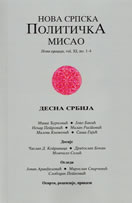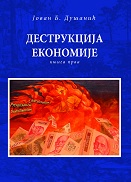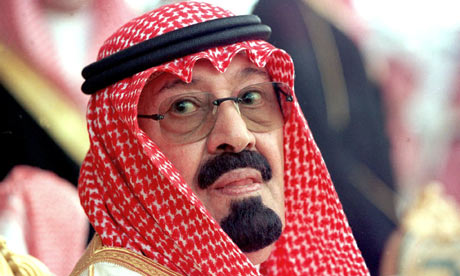| NSPM in English | |||
Saudi Arabia rated a bigger threat to Iraqi stability than Iran |
 |
 |
 |
| субота, 11. децембар 2010. | |
|
(Guardian, December 5, 2010)
Iraqi government officials see Saudi Arabia, not Iran, as the biggest threat to the integrity and cohesion of their fledgling democratic state, leaked US state department cables reveal.
The Iraqi concerns, analysed in a dispatch sent from the US embassy in Baghdad by then ambassador Christopher Hill in September 2009, represent a fundamental divergence from the American and British view of Iran as arch-predator in Iraq. "Iraq views relations with Saudi Arabia as among its most challenging given Riyadh's money, deeply ingrained anti-Shia attitudes and [Saudi] suspicions that a Shia-led Iraq will inevitably further Iranian regional influence," Hill writes. "Iraqi contacts assess that the Saudi goal (and that of most other Sunni Arab states, to varying degrees) is to enhance Sunni influence, dilute Shia dominance and promote the formation of a weak and fractured Iraqi government." Hill's unexpected assessment flies in the face of the conventional wisdom that Iranian activities, overt and covert, are the biggest obstacle to Iraq's development. It feeds claims, prevalent after the 9/11 attacks, that religiously conservative, politically repressive Saudi Arabia, where most of the 9/11 terrorists came from, is the true enemy of the west. Hill's analysis has sharp contemporary relevance as rival Shia and Sunni political blocs, backed by Iran and the Saudis respectively, continue to squabble over the formation of a new government in Baghdad, seven months after March's inconclusive national elections. Hill says Iraqi leaders are careful to avoid harsh criticism of Saudi Arabia's role for fear of offending the Americans, Riyadh's close allies. But resentments simmer below the surface. "Iraqi officials note that periodic anti-Shia outbursts from Saudi religious figures are often allowed to circulate without sanction or disavowal from the Saudi leadership. This reality reinforces the Iraqi view that the Saudi state religion of Wahhabi Sunni Islam condones religious incitement against Shia." Hill reports the Saudis have used considerable financial and media resources to support Sunni political aspirations, exert influence over Sunni tribal groups, and undercut the Shia Islamic Supreme Council of Iraq (ISCI) and Iraqi National Alliance. Hill adds that some Iraqi observers see Saudi aims as positively malign. "A recent Iraqi press article quoted anonymous Iraqi intelligence sources assessing that Saudi Arabia was leading a Gulf effort to destabilise the Maliki government and was financing 'the current al-Qaida offensive in Iraq'." Hill and his Iraqi interlocutors are not alone in their suspicions of Saudi policy. At a meeting in Ankara in February this year a senior Turkish foreign ministry official, Feridun Sinirlioglu, told an American envoy that "Saudi Arabia is 'throwing around money' among the political parties in Iraq because it is unwilling to accept the inevitability of Shia dominance there". Returning to more familiar ground, Hill asserts that Iranian efforts in Iraq are also "driven by a clear determination to see a sectarian, Shia-dominated government that is weak, disenfranchised from its Arab neighbours, detached from the US security apparatus and strategically dependent on Iran". Such an outcome is not in the interests of the US, he notes drily. But he passes on to Washington the arguments of Iraqi officials who say they know how to "manage" Iran. "Shia contacts ... do not dismiss the significant Iranian influence but argue that it is best countered by Iraqi Shia politicians who know how to deal with Iran." These officials also maintain Iranian interference "is not aimed, unlike that of some Sunni neighbours, at fomenting terrorism that would destabilise the government". They predict Tehran's meddling will "naturally create nationalistic Iraqi resistance to it, both Shia and more broadly, if others do not intervene". The difficulties encountered by Iranian-backed Shia parties in coming together to form a new government, despite much urging from Tehran and the co-opting of the hardline Iran-based cleric Moqtada al-Sadr, could be seen as evidence that Iran's overall influence has been exaggerated and that public "resistance" to Iran's role is indeed growing. All the same, American officials continue to blame Iran principally for instigating and fomenting much of the sectarian and insurgent violence that has disfigured Iraq since the 2003 invasion. James Jeffrey, Hill's successor as US ambassador, claimed in August that about one-quarter of all US casualties in Iraq were caused by armed groups backed by Iran. A Baghdad embassy cable from November 2009 says Iran continues to view Iraq as "a vital foreign policy priority for the Iranian government's efforts to project its ideology and influence in the region". At the head of this effort, it says, is the Iranian Revolutionary Guards Corps-Qods (Jerusalem) Force, or IRGC-QF, led by Brigadier-General Qasem Soleimani, whose authority is "second only to supreme leader [Ayatollah Ali] Khamenei". Soleimani has close ties with prominent Iraqi government officials, including the president, Jalal Talibani, and prime minister, Nouri al-Maliki, the cable reports. "Khamenei, President [Mahmoud] Ahmadinejad, Speaker [Ali] Larijani and former president [Ayatollah Akhbar Hashemi] Rafsanjani consult regularly with visiting GOI [government of Iraq] officials as part of the IRIG's [Islamic Republic of Iran government] broader 'strategic' council of advisers seeking to influence the GOI." The cable continues that Iran's tools of influence include financial support to and pressure on a cross-spectrum of Iraqi parties and officials; economic development assistance, notably to religious organisations; lethal aid to selected militant Shia proxies; and sanctuary to Iraqi figures fearful of US government targeting, or those seeking to revitalise their political-religious credentials, most notably Moqtada al-Sadr. "This leverage also extends, to a lesser extent, to select Sunni actors, including such public figures as Iraqi speaker [Iyad al-] Samarra'i, whose September visit to Tehran included meetings with several senior IRIG officials." The cable comments that Iran is watching the US troop withdrawal schedule closely as it tries to make permanent its "strategic foothold". All US troops are expected to leave Iraq by the end of next year. But the cable's American author also injects some welcome historical perspective. "Iran will continue to flex its muscles to ensure its strategic outcomes are met. This should not lead to alarmist tendencies or reactions on our part. The next Iraqi government will continue to cultivate close ties with Iran, given longstanding historical realities that precede Iraq's ties with the United States. "On the other hand Iran's influence should not be overestimated. As the GOI continues to gain its footing, points of divergence between Tehran and Baghdad become increasingly evident on such sensitive bilateral issue as water, hydrocarbons, maritime borders and political parity. Some prominent Iraqi leaders, including those with ties to Iran, are increasingly sensitive to being labelled Iranian lackeys." A visit last December by US diplomats to the Iraqi holy city of Najaf, the "epicentre of Shia Islam", finds further evidence of Iraqi public resentment of foreign meddling from whatever quarter. One local leader "singled out Saudi Arabia and Iran as the biggest culprits but noted that a 'mental revolution' was under way among Iraqi youth against foreign agendas seeking to undermine the country's stability". Iraqi sources also tell the visiting Americans that the Iranian government and the IRGC cannot match the "social and political clout" that Iraq's Shia establishment, led by the Shia world's most senior cleric, Grand Ayatollah Ali al-Sistani, wields among the ordinary citizens of both Iraq and Iran. Sistani, it is noted, rejects the fundamental tenet of Iranian clerical rule – the unchallengeable "custodianship of the jurist" adopted by the late Ayatollah Ruhollah Khomeini to justify his de facto dictatorship. Seen this way the entire Iranian Islamic revolution is illegitimate. http://www.guardian.co.uk/world/2010/dec/05/wikileaks-cables-saudi-meddling-iraq |
Од истог аутора
Остали чланци у рубрици
- Playing With Fire in Ukraine
- Kosovo as a res extra commercium and the alchemy of colonization
- The Balkans XX years after NATO aggression: the case of the Republic of Srpska – past, present and future
- Из архиве - Remarks Before the Foreign Affairs Committee of the European Parliament
- Dysfunction in the Balkans - Can the Post-Yugoslav Settlement Survive?
- Serbia’s latest would-be savior is a modernizer, a strongman - or both
- Why the Ukraine Crisis Is the West’s Fault
- The Ghosts of World War I Circle over Ukraine
- Nato's action plan in Ukraine is right out of Dr Strangelove
- Why Yanukovych Said No to Europe

.jpg)








 WikiLeaks cables: Baghdad says it can contain influence of Shia neighbour, unlike powerful Gulf state that wants a return to Sunni dominance
WikiLeaks cables: Baghdad says it can contain influence of Shia neighbour, unlike powerful Gulf state that wants a return to Sunni dominance













